Review: Candide (Barrie)
Candide
Talk Is Free Theatre
Book adapted from Voltaire by Hugh Wheeler. Music by Leonard Bernstein. Lyrics by Richard Wilbur with additional lyrics by Stephen Sondheim and John Latouche. Directed by Richard Ouzounian. Set and lighting by Joe Pagnan. Costumes and props by Andrew Cleveland. Choreographed by David Ball. Musical direction by Lily Ling. At Park Place Theatre (in Barrie, Ont.). Runs until December 2.
When Voltaire wrote Candide in 1759, he was satirizing what was going on in his world: war, greed, rape, violence. One can only imagine what he would think of our world today.
Candide was a young man living in idyllic surroundings, taught to believe in optimism as a way of life. When all hell broke loose, he had to learn—through bitter personal experience—that “everything was not for the best in what he thought was the best of all possible worlds.”
Voltaire’s novel was adapted for the musical stage in 1956 with a glorious score by Leonard Bernstein and has had various incarnations since then. The most radical is this lively and well-intentioned production at the Park Place Theatre in Barrie, directed by Richard Ouzounian.
Ouzounian has cut the show down to a cast of five playing various parts (the original production had a cast of 45!). He was fastidious in his research about previous productions and obviously wanted to be true to the spirit of the piece. And it gets off to a rousing start when Lily Ling on piano and Jamie Drake on percussion play the stirring overture. It’s glorious.
But Ouzounian veers too often into cheesy humour for easy laughs that are unnecessary. For instance, “Oprah” opens the show. Really. A bewigged, caftan-wearing Oprah (Thom Allison) arrives smiling and sassy, holding a copy of Candide with her seal of approval on it and begins to read it to us, introducing the characters. But when one of the main characters, Dr. Pangloss, has to enter, Allison does a quick change as Oprah morphs into Pangloss, and she’s never seen again.
Later, as Candide travels the world from one horror to another, puppets are used to represent characters. One is a pointy-sheet-covered member of the KKK, which is appropriate for the scene. But several more are questionable: it’s hard to tell who the puppet with the yellow hair and beaked nose is until he says, “You’re fired! … Sad.” Or the puppet with black hair and a Mao suit—is that Kim Jong Un or someone else? Another one wore a beret and held what looked like an Academy Award. Is that Harvey Weinstein? And how is his inclusion appropriate? If it’s not clear the point is lost.
Ouzounian certainly negotiated his cast around Joe Pagnan’s multi-levelled chessboard set as the characters travelled from country to country. But within scenes, there is so much unnecessary business one wanted them to just stop and play it out. David Ball’s choreography is appropriately lively.
The cast is top notch, and they all sing beautifully. As Candide, Mike Nadajewski has a sweet innocence that gradually matures into knowing wisdom. Holly Chaplin, who plays his lady love Cunegonde, bangs those high notes in “Glitter and Be Gay” with the ease of someone flipping an errant hair out of her face. And, like Candide, we get to watch her grow from being a sex object to a wise woman.
The cast of five sing the stirring “Make Our Garden Grow” with such power and conviction that that’s all that’s needed to bring this show to a skin-tingling conclusion. But Ouzounian has a small choir of high school students enter and stand to the side of the stage, singing the song as well. They are a distraction and really don’t add anything more to what the five glorious cast members do on their own.
Sure I have concerns about the production, but on the whole it stands on its own. And cutting the cast down to five accomplished actor/singers to tell the story is inspired.
For tickets or more information, click here.

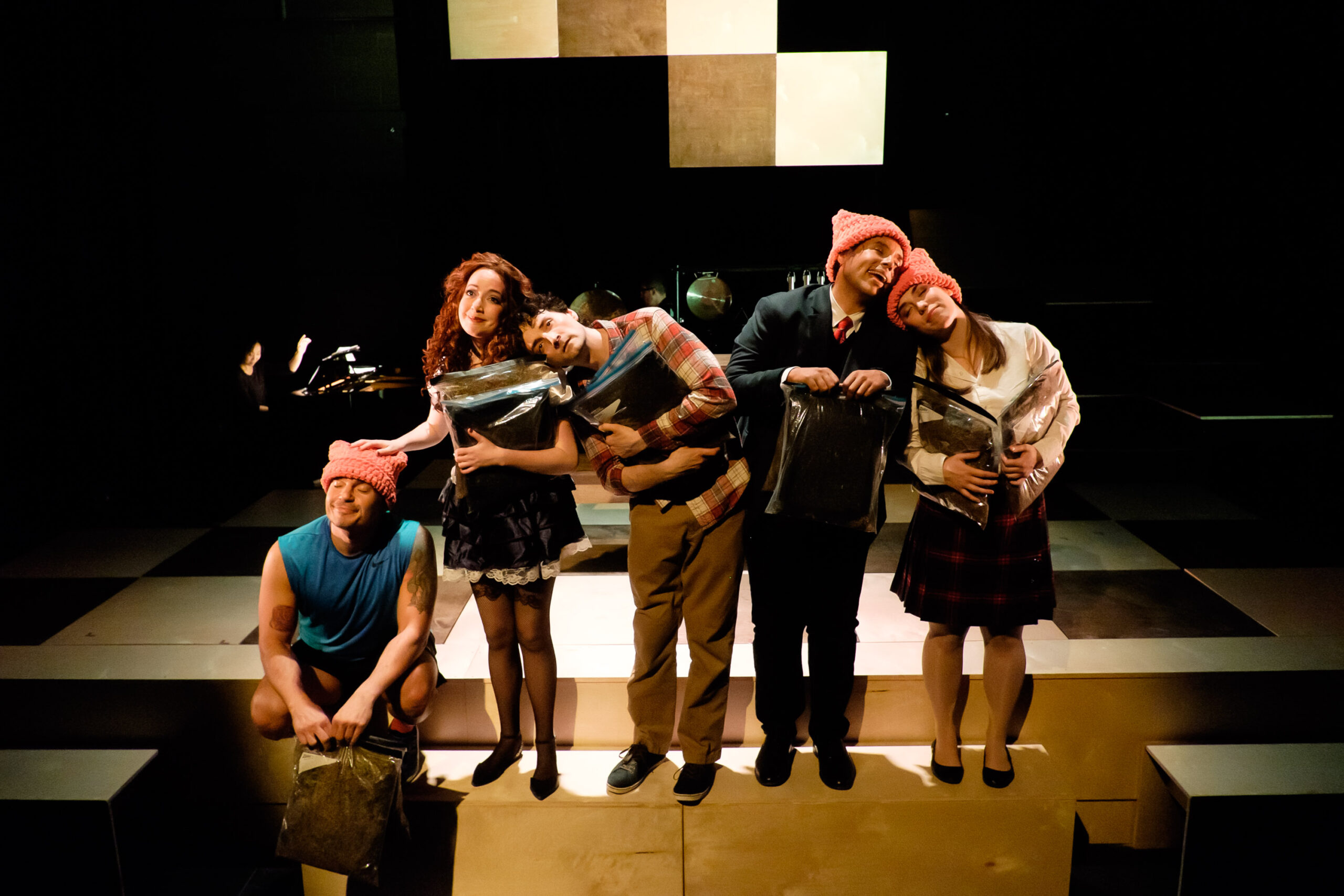
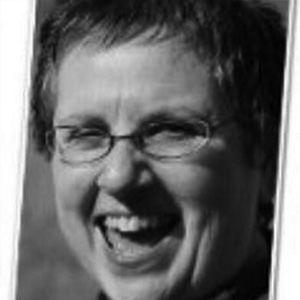






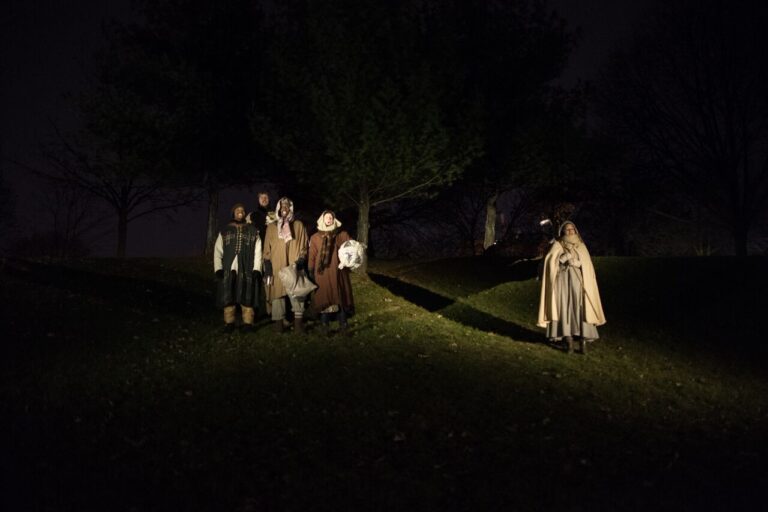
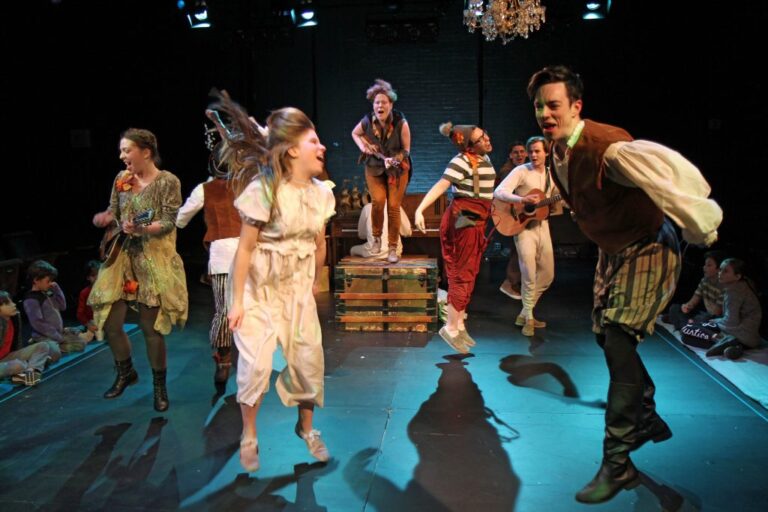
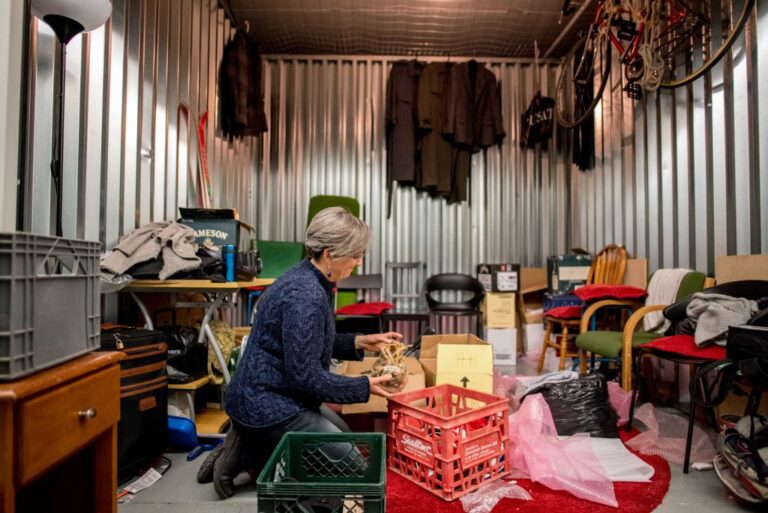
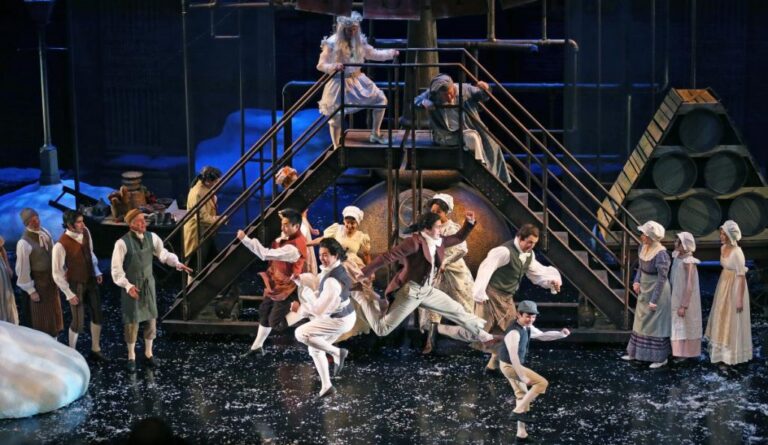
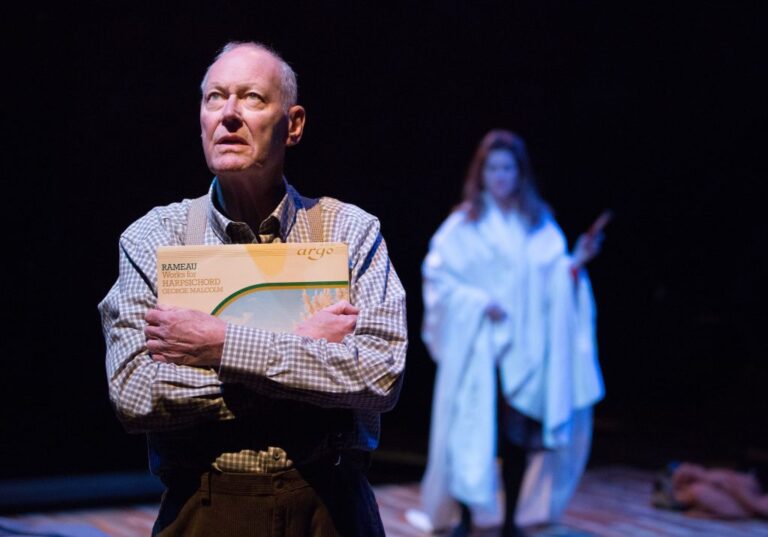
Comments